Even though pregnancy induces certain health conditions, some of which can affect the mother badly, most of these health issues disappear after the delivery. However, sometimes, certain health conditions induced in the course of pregnancy can be recognized only after the delivery. Pregnancy-induced osteoporosis is one among them.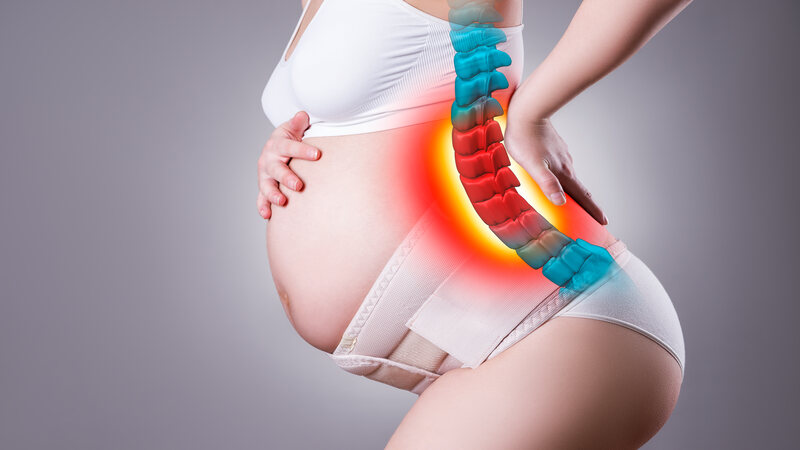
What Is Osteoporosis?
Osteoporosis signifies “porous bones”. When examined through a microscope, a healthy bone resembles a honeycomb. In osteoporotic bones, the holes and gaps in the honeycomb appear much bigger than in healthy bone. Osteoporotic bones lose their thickness or mass, become weak, and are more likely to break.
When a person has osteoporosis, the bones can turn out to be so brittle that activities like twisting and turning, bending over, lifting a vacuum or even a cough can cause a fracture (1). Osteoporosis occurs either when the body loses an excessive amount of bone or creates too minimal bone.
What Is Pregnancy-Associated Osteoporosis?
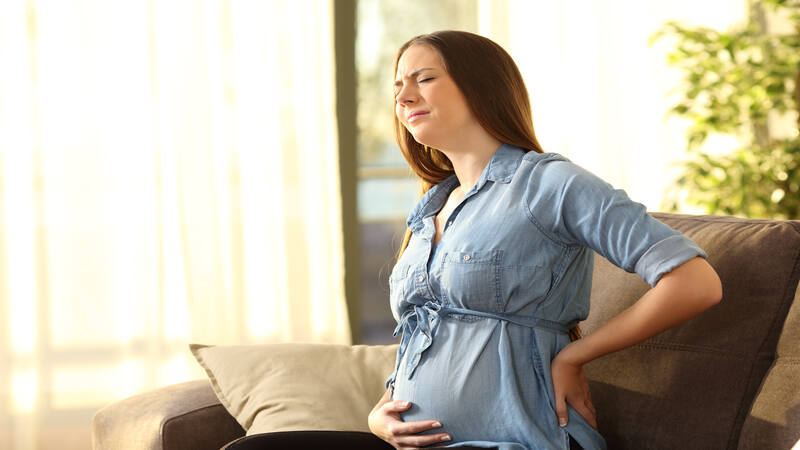 Pregnancy-related osteoporosis is an unusual condition that usually shows up (mostly) during the first pregnancy. The bones of the woman who experiences osteoporosis break easily during pregnancy or within a couple of weeks after delivery. The breaks usually happen in the spine, and sometimes in the hip. Even though it can be painful and incapacitating for some time, the bones normally recover the break quickly and most women recover fully without affecting their day-to-day life. Pregnancy-associated osteoporosis is generally transitory, and as a rule, does not reoccur in the following pregnancies.
Pregnancy-related osteoporosis is an unusual condition that usually shows up (mostly) during the first pregnancy. The bones of the woman who experiences osteoporosis break easily during pregnancy or within a couple of weeks after delivery. The breaks usually happen in the spine, and sometimes in the hip. Even though it can be painful and incapacitating for some time, the bones normally recover the break quickly and most women recover fully without affecting their day-to-day life. Pregnancy-associated osteoporosis is generally transitory, and as a rule, does not reoccur in the following pregnancies.
When Does Pregnancy-Associated Osteoporosis Affect An Expecting Mother?
Pregnancy-associated osteoporosis is mostly figured out during the postpartum period or the third trimester (2). It usually occurs during the first pregnancy and being temporary, once it goes away it does not happen again. The loss in bone density due to pregnancy and breastfeeding is temporary, and the full bone density can be recovered within 6 months usually (3).
Causes Behind Pregnancy-Induced Osteoporosis?
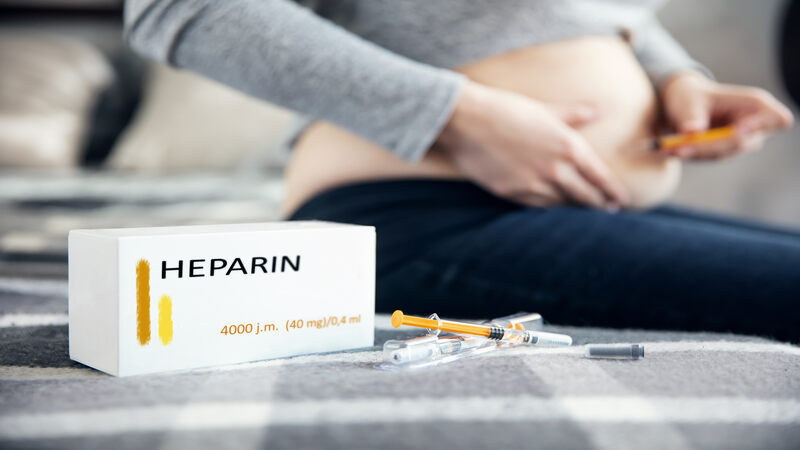 There is no evidence of why some women are more prone to low bone density. More work is needed in this field to distinguish the primary reason. Mostly osteoporosis is reported, when:
There is no evidence of why some women are more prone to low bone density. More work is needed in this field to distinguish the primary reason. Mostly osteoporosis is reported, when:
Closely spaced pregnancies
Women who get pregnant three months after the previous delivery may have a greater risk for osteoporosis than those who wait longer between babies.
Pre-existing condition
It is possible that some women already have low bone density before getting pregnant, either due to medications or due to the lifestyle
Genetic factor
The researchers are not denying the role of the genetic factors when it comes to pregnancy-related osteoporosis
Increased bone metabolism
The bone metabolism increases during the third trimester, as the skeletal system of the baby is also developing and the bones are undergoing calcification (4). This will bring about extra withdrawal from the calcium bank thus adding stress to the mother’s skeleton.
Inadequate levels of calcium and vitamin D
Inadequate calcium and vitamin D levels may result in the excessive ‘withdrawals’ from the calcium bank, bringing about the weakening of the bones in the course of pregnancy
Heparin shots
Heparin injections taken before or in the course of pregnancy to treat a serious condition called anti-phospholipid syndrome, in some instances, result in pregnancy-associated osteoporosis
What Are The Symptoms Of Pregnancy-Associated Osteoporosis?
There are no particular symptoms that indicate the issue of osteoporosis. However, the expecting mother experiencing osteoporosis often develops:
- Severe back pain
- Loss of height
- Vertebral fracture
How Is Pregnancy-Induced Osteoporosis Diagnosed?
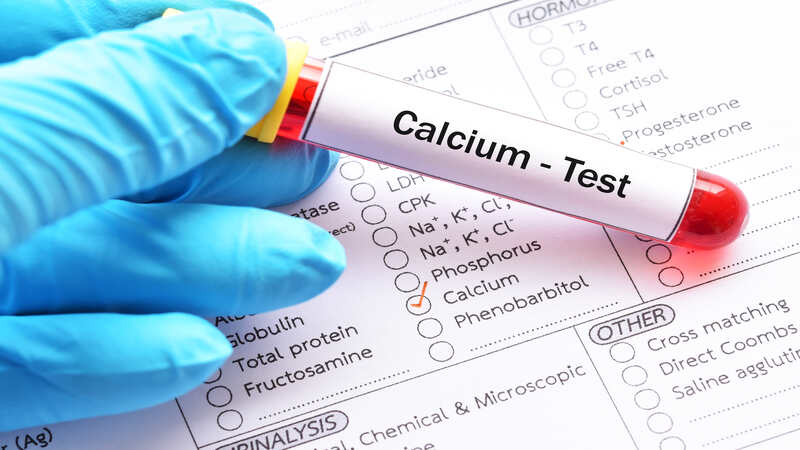 Pregnancy-associated osteoporosis usually remains unidentified until the delivery. This is because there is no particular sign that specifies the condition of osteoporosis. Besides, back pain, the vital sign of osteoporosis, as the spine is more prone to its ill effects, is really common during pregnancy. Moreover, the procedures like bone scans and X-rays, which are used to diagnose osteoporosis, are very dangerous to perform during pregnancy.
Pregnancy-associated osteoporosis usually remains unidentified until the delivery. This is because there is no particular sign that specifies the condition of osteoporosis. Besides, back pain, the vital sign of osteoporosis, as the spine is more prone to its ill effects, is really common during pregnancy. Moreover, the procedures like bone scans and X-rays, which are used to diagnose osteoporosis, are very dangerous to perform during pregnancy.
A fracture during pre-delivery delivery or post-delivery generally leads to a diagnosis of pregnancy-induced osteoporosis. As already mentioned, hip bones and ribs are more frequently susceptible to fracture.
Does My Baby’s Bones Get Affected Due To Pregnancy Osteoporosis?
No. The pregnancy-induced osteoporosis has no harmful effect on the bones of the baby (5). All the calcium deposition needs of the baby are fulfilled from the withdrawn calcium from the calcium bank of the mother.
What Are The Treatment Plans For Pregnancy-Induced Osteoporosis?
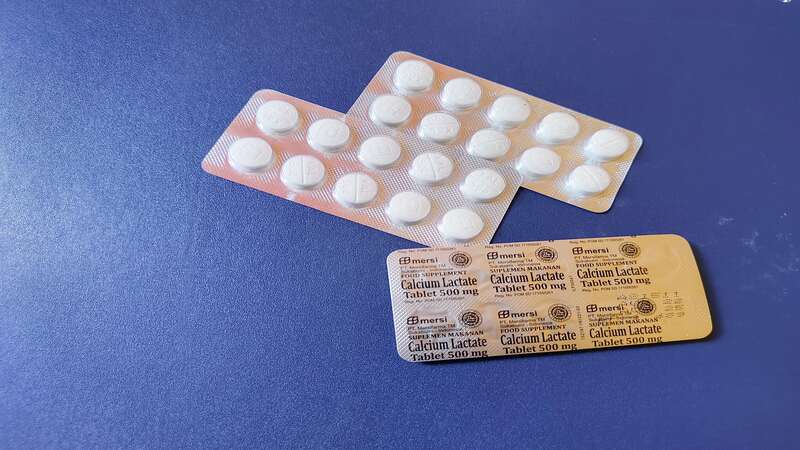
Pregnancy-induced osteoporosis can be treated in many ways listed below-
- Fractures in vertebrae mostly heal on its own
- A fracture in the spine needs prolonged rest to heal
- Vitamin D and calcium supplements are prescribed to fix the bone density.
- Medicines to get relief from the pain and that cause no harm during breastfeeding is prescribed by the doctor
- Hydrotherapy, the therapy done in the swimming pool under the supervision of a physiotherapist, helps to relieve pain, as you feel weightless and easy to move around.
- Transcutaneous Electrical Nerve Stimulation (TENS) machine is used in which, electrical impulses are utilized to block the pain signals
Can I Feed My Baby If I Had Pregnancy-Induced Osteoporosis?
Some doctors strongly disagree with feeding your baby if you have osteoporosis, as the breastfeeding will draw more calcium from the skeleton and can delay the recovery of your bone strength. However, breastfeeding is also a very personal, individual choice. If you insist you need to feed the baby, discuss the matter with the doctor. The doctor will try to find a solution to increasing the intake of vitamin and mineral supplements.
FAQ’s
1. Can Osteoporosis Affect Pregnancy?
Osteoporosis in pregnancy is quite rare. It can be quite distressing during pregnancy as it can lead to fractures which can be painful. This condition can be taken care of by taking calcium supplements and monitoring by your doctor.
2. What Is The Final Stage Of Osteoporosis?
The final stage of osteoporosis is characterized by significant decrease in the bone density leading to an increased risk of fractures. Even slight trauma can cause multiple fractures causing a decrease in the quality of life.
3. Can You Fully Recover From Osteoporosis?
Usually, osteoporosis cannot be reversed. Though there are ways to manage it using a good diet and regular exercises. The decrease in bone density cannot be reversed. Regular monitoring ensures improvement in bone health.
4. Does Pregnancy Affect Bone Density?
The various hormonal changes during pregnancy can lead to a decreased bone density. One of the reasons for the declining bone density is the increased demand of calcium for the growing fetal skeleton.
5. Does Pregnancy Cause Osteoporosis Later In Life?
Usually, pregnancy does not cause osteoporosis later in life as the decrease in bone density during pregnancy is often restored after delivery and weaning.
References
- Mayo Clinic, Osteoporosis – https://www.mayoclinic.org/diseases-conditions/osteoporosis/symptoms-causes/syc-20351968#
- Peltz-Sinvani N, Raz HM, Klein P, Ish-Shalom S, Vered I, Tripto-Shkolnik L. Pregnancy- and lactation-induced osteoporosis: a social-media-based survey. BMC Pregnancy Childbirth. – https://www.ncbi.nlm.nih.gov/pmc/articles/PMC10152747/
- Scioscia MF, Zanchetta MB. Recent Insights into Pregnancy and Lactation-Associated Osteoporosis (PLO). Int J Womens Health. 2023 Aug – https://www.ncbi.nlm.nih.gov/pmc/articles/PMC10404404/
- Mahadevan S, Kumaravel V, Bharath R. Calcium and bone disorders in pregnancy. Indian J Endocrinol Metab. 2012 May – https://www.ncbi.nlm.nih.gov/pmc/articles/PMC3354840/
- Royal Osteoporosis Society, Pregnancy and osteoporosis – https://theros.org.uk/information-and-support/osteoporosis/pregnancy-associated-osteoporosis/#

